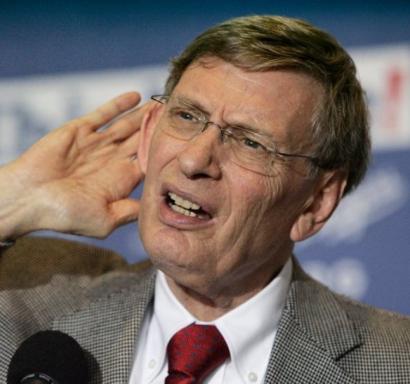 Since the beginning of this blog, we have looked at a couple of potential collusion claims against the MLB. First, Jason Wulterkens explored the possibility that owners were colluding to hold down A-Rod’s contract and share information about their general free agent plans. That was Winter of 2007. But most baseball fans are more aware of Jeff Borris’ cry of collusion from earlier this year. His client, the well known Barry Bonds, could not find work no matter how many members of the media Borris reached out to…even after Borris said that Bonds would play for the league minimum. In October, the MLBPA said that it found evidence of collusion, but delayed the filing of any grievance. Unfortunately for Borris and Bonds, the MLBPA is the exclusive bargaining unit for MLB players, and thus, if the MLBPA chooses not to file a grievance, there is little that Borris and Bonds can do. Labor Law may actually be coming in handy.
Since the beginning of this blog, we have looked at a couple of potential collusion claims against the MLB. First, Jason Wulterkens explored the possibility that owners were colluding to hold down A-Rod’s contract and share information about their general free agent plans. That was Winter of 2007. But most baseball fans are more aware of Jeff Borris’ cry of collusion from earlier this year. His client, the well known Barry Bonds, could not find work no matter how many members of the media Borris reached out to…even after Borris said that Bonds would play for the league minimum. In October, the MLBPA said that it found evidence of collusion, but delayed the filing of any grievance. Unfortunately for Borris and Bonds, the MLBPA is the exclusive bargaining unit for MLB players, and thus, if the MLBPA chooses not to file a grievance, there is little that Borris and Bonds can do. Labor Law may actually be coming in handy.
The MLBPA has had some strong success against the MLB when it comes to filing grievances for collusion. Perhaps, the association does not want to ruin its fantastic record. In the 1980’s three separate collusion claims were ruled in favor of the MLBPA, granting $280 million in total to the organization after settlement. Marc Edelman, sports law attorney, author, professor, and future speaker at the UF Sports Law Symposium mentioned that fact and brings up other points in his Loyola of Los Angeles Entertainment Law Journal article titled, Has Collusion Returned To Baseball? Importantly, he notes that a prohibited plan according to the MLB CBA does not need to be in writing. It may be found to be collusion based on a totality of the circumstances, which seems to be a somewhat liberal stance. Not only do we have the potential collusion with A-Rod and other free-agents in 2007 or the possible claim against the owners for colluding against Bonds in 2008, but Edelman feels that in the 2002-03 off-season there may have also been a valid claim against the clubs.
Why is the MLBPA not taking action against the MLB based on these potential claims? Is there not enough evidence? Has the association felt that labor peace is more important than filing a grievance on behalf of a few players who may not have strong cases? Do you see a possible grievance being filed any time in the near future?
2 replies on “Possible Collusion, But A Lack Of Grievances”
[…] notes that there are a few possible collusion cases available to the MLBPA, but no grievances have been filed: Why is the MLBPA not taking action against the MLB based on […]
Just a quick note…
The nature of media coverage today, regarding free agency, trades, etc., has essentially rendered individual team’s off- season plans completely transparent. GM’s do not need to communicate directly in order to gain insight into the strategies employed by their competition. The specific player’s targeted, as well a the budgetary restrictions within which another team must operate are readily available with a few key strokes or by flipping through the sports section of the local news paper. Entire websites are dedicated to seeking out and reporting this information as soon as it becomes available. “Leaks” to the media have become incredibly commonplace- to the point that one is astounded when a signing/deal occurs without any prior warning.
If a GM choses to look at this information, even if he does not speak with representatives of another organization, can he be said to have engaged in collusion? I find it difficult to conclude that he has. Any yet, the same, or at least similar results occur. Perhaps it is the access provided to the media which has “watered down,” and perhaps rendered moot, the Player’s Association’s collusion claims.